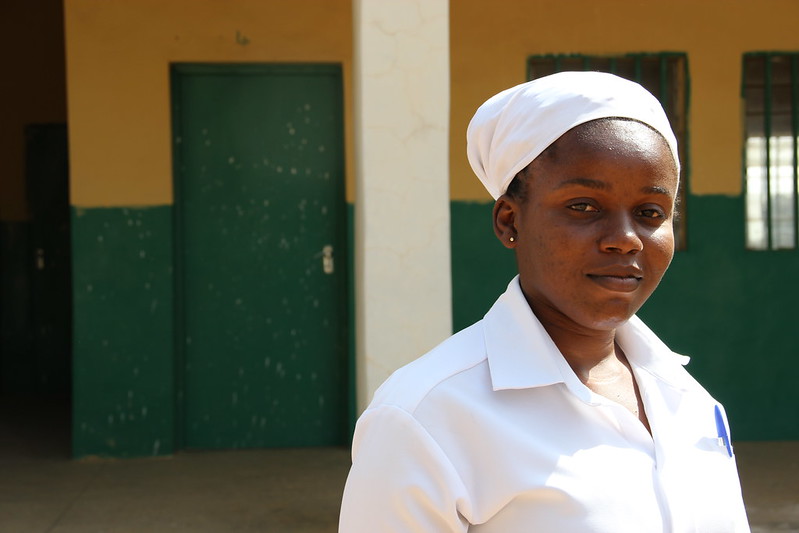How COVID-19 Has Slowed Nigeria’s Access to Medicine
 Nigeria, a country with both bustling cities and green plains stretching for miles, has earned the nickname “Giant of Africa.” Although Nigeria isn’t the largest country in Africa, it has the largest population with 206 million people calling it home. Even though the population in Nigeria has grown in 2020 by 2.58%, the country still has a high mortality rate and life expectancy of 54 years. Nigeria has one of the biggest HIV pandemics as well as a high risk for malaria. Access to medicine and vaccines have always been limited in Nigeria; however, COVID-19 has exacerbated the issues facing Nigeria’s healthcare system. The COVID-19 pandemic has increased restrictions on international trade, which has greatly impacted Nigeria’s pharmaceutical needs for people with pre-existing conditions, particularly those with HIV/AIDS or malaria. As 70% of Nigeria’s medical products are shipped from China and India, COVID-19 has interrupted an important part of Nigeria’s basic health needs.
Nigeria, a country with both bustling cities and green plains stretching for miles, has earned the nickname “Giant of Africa.” Although Nigeria isn’t the largest country in Africa, it has the largest population with 206 million people calling it home. Even though the population in Nigeria has grown in 2020 by 2.58%, the country still has a high mortality rate and life expectancy of 54 years. Nigeria has one of the biggest HIV pandemics as well as a high risk for malaria. Access to medicine and vaccines have always been limited in Nigeria; however, COVID-19 has exacerbated the issues facing Nigeria’s healthcare system. The COVID-19 pandemic has increased restrictions on international trade, which has greatly impacted Nigeria’s pharmaceutical needs for people with pre-existing conditions, particularly those with HIV/AIDS or malaria. As 70% of Nigeria’s medical products are shipped from China and India, COVID-19 has interrupted an important part of Nigeria’s basic health needs.
Healthcare in Nigeria
Nigeria has always had trouble accessing medication as the country has a great dependency on imported products. According to Medrxiv, a server for health sciences, in 2013, only 25% of kids under the age of 2 had been vaccinated. In an attempt to secure a more efficient healthcare system, Nigeria began to manufacture its own pharmaceuticals but lately, production has been on a decline due to high prices, poor quality and a shortfall in access to medicine. Nigeria has 115 pharmaceutical manufacturers but they mainly rely on large imports from neighboring countries.
Before the virus swept across Nigeria, the country only had 350 ventilators and beds for the entire population. In April 2020, Nigeria obtained 100 more ventilators. But, what has actually been done to improve Nigeria’s basic health needs?
Changing Nigeria’s Healthcare
In 2018, four policy documents were presented to Nigeria by the Federal Minister of Health. The four policies acknowledge Nigerians need for access to medication and control of narcotics.
- The National Policy for Controlled Medicines — This policy, with support from the United Nations Office on Drugs and Crime (UNODC) and the European Union (EU), aims to improve healthcare services in Nigeria. By properly training healthcare professionals, narcotics can be safely monitored for medical and scientific use while avoiding abuse. The policy ensures that Nigeria will have better access to medication so citizens do not have to silently suffer. In 2012, as reported by The Global Access to Pain Relief Initiative, Nigeria only used 0.01% of narcotics to manage pain. The UNODC states, “This was largely attributed to limited or poor quantification of annual estimates, inadequate and irregular release of funds for procurement, limited knowledge and poor attitude, or issues of fear and stigma among many healthcare workers and the general populace.”
- National Guidelines for Quantification of Narcotic Medicines — This policy is continuous of Nigeria’s efforts to have access to “narcotic medicines.” It is a way to know how much medicine is required to fulfill Nigeria’s basic health needs. By creating a standardized system, Nigeria can estimate which and how many narcotics are needed for the country.
- National Guidelines for the Estimation of Psychotropic Substances and Precursors — This policy regulates “psychotropic substances,” such as alcohol, caffeine and marijuana. These drugs, according to the UNODC, can be used for “pain management including treatment of neuropathic pain and in the management of obstetric emergencies including hemorrhage, thus critical in reducing maternal deaths.” The policy verifies that these substances are and will be used for legal use only.
- National Minimum Standards of Drug Dependence — In the past, Nigeria treated addiction as a psychiatric condition or mental illness. Although Nigeria does not have the data to see how many people in the country have a drug dependency, treatments of addiction are changing. The policy’s goal is to have adequate care such as “counseling, vocational and occupational rehabilitation” available across Nigeria.
According to a 2020 Statista analysis, the budget for Nigeria’s healthcare is expected to increase, eventually reaching 1477 billion Nigerian naira by 2021. This can create more opportunities for Nigeria’s healthcare system, increase access to medicine and fulfill Nigeria’s basic health needs.
– Jessica LaVopa
Photo: Flickr
